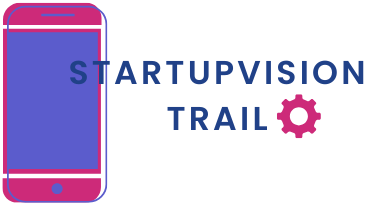Table of Contents
ToggleIn today’s fast-paced business world, managing information can feel like trying to catch a greased pig at a county fair. With data pouring in from every direction, it’s no wonder companies are turning to enterprise information management software. This powerful tool is like having a personal assistant who never sleeps, organizes your chaos, and even remembers your coffee order.
Imagine effortlessly streamlining processes, enhancing collaboration, and making data-driven decisions without breaking a sweat. Enterprise information management software isn’t just a luxury; it’s a game-changer for businesses looking to thrive in the digital age. So, if you’re ready to swap confusion for clarity and become the superhero of your organization, it’s time to dive into the world of EIM software. Your data deserves a hero, and who knows? You might just save the day.
Overview of Enterprise Information Management Software
Enterprise information management software plays a pivotal role in organizing and managing an organization’s information assets. This software integrates various data sources, ensuring businesses access accurate and timely information. In numerous industries, effective data management enhances operational efficiency and drives informed decision-making.
Numerous features characterize EIM software. Data governance capabilities help establish standards and policies for data quality and security. Workflow automation simplifies routine tasks, reducing manual effort. Additionally, robust analytics provide insights that empower stakeholders to make strategic decisions.
Implementing EIM software can transform how teams collaborate. With centralized access to information, employees can easily share resources and insights, fostering a culture of transparency. This accessibility supports cross-departmental projects, aligning teams toward common objectives.
Scalability stands out as another benefit. As organizations evolve, EIM software adapts to accommodate changing requirements. Companies can manage increased data volumes without sacrificing performance or usability.
Cloud-based solutions further enhance accessibility. Teams can access information from anywhere, allowing remote work and real-time collaboration. This flexibility is essential in today’s hybrid work environments.
Financially, investing in EIM software proves beneficial. Streamlined processes lead to cost savings and improved resource allocation. Organizations that embrace these tools often see higher productivity levels and increased competitive advantages.
EIM software emerges as crucial for businesses navigating the complexities of modern information management. Embracing it offers opportunities for enhanced organizational performance and positions companies for success in the digital landscape.
Key Features and Functionality
Enterprise information management software offers features that streamline operations and enhance decision-making. Organizations benefit from its integrated functionality that addresses various information management challenges.
Data Storage and Retrieval
Effective data storage and retrieval systems enable quick access to vital information. Organizations can store vast amounts of data in a centralized repository, ensuring data is organized by classification or access level. Users retrieve data using advanced search capabilities that filter results based on specific criteria. Moreover, metadata tagging enhances search efficiency, allowing employees to locate necessary files without delays. Time savings accompany seamless access to data, crucial for informed decision-making.
Integration with Existing Systems
Integration capabilities ensure EIM software works harmoniously with current systems. It connects with customer relationship management, enterprise resource planning, and other software platforms, providing a unified view of information. Organizations achieve smoother workflows through real-time data sharing among systems, minimizing redundancy and errors. Custom APIs and built-in connectors facilitate this process, enabling teams to streamline operations. Users experience enhanced efficiency as they leverage existing infrastructures without overhauling current systems.
Security and Compliance Features
Robust security features protect sensitive information from unauthorized access. EIM software employs encryption and access controls to safeguard data integrity. Compliance with industry regulations is vital, and built-in compliance features help organizations meet legal obligations. Regular audits and monitoring tools ensure adherence to policies, creating accountability within teams. Organizations benefit from enhanced trust levels among stakeholders as compliance fosters transparency and data protection.
Benefits of Using Enterprise Information Management Software
Enterprise information management (EIM) software delivers numerous advantages that transform how organizations handle their data and streamline operations.
Improved Decision-Making
Access to accurate, real-time data significantly enhances decision-making processes. EIM software consolidates information from various sources, ensuring decision-makers rely on comprehensive insights. Customizable dashboards allow users to visualize data trends and evaluate performance metrics quickly. With robust analytics capabilities, organizations analyze historical patterns for strategic forecasting. When teams operate on shared, up-to-date information, they make well-informed choices aligned with business objectives. The integration of advanced predictive analytics further empowers leaders to anticipate challenges and seize opportunities that may arise.
Enhanced Collaboration
Centralized information access fosters better collaboration across departments. EIM software eliminates silos by providing a single source of truth for all team members. As employees share data, they align efforts more effectively towards common goals. User-friendly interfaces facilitate easy communication, enabling real-time feedback and discussions about ongoing projects. Document management features support version control, allowing teams to track changes and collaborate seamlessly on shared documents. With enhanced transparency, organizations promote a culture of openness and accountability, which strengthens relationships among stakeholders.
Challenges and Considerations
Enterprise information management software presents specific challenges that organizations must navigate for successful implementation and usage.
Implementation Issues
Implementing EIM software poses several challenges that organizations face. Complexity in integration with existing systems can lead to unexpected delays. Limited resources, including time and budget constraints, often hinder smooth deployment. Organizations might also encounter resistance from internal teams during the transition phase. Ensuring proper alignment between business objectives and technology capabilities remains critical. Technical difficulties in customizing the software to meet unique needs can further complicate the implementation process. Effective planning and clear communication significantly alleviate many of these issues.
User Adoption and Training
User adoption of EIM software is crucial for maximizing its benefits. Understanding the software requires comprehensive training programs tailored to various user levels. Insufficient training can lead to reduced engagement and hinder productivity. Resistance to change may surface, emphasizing the importance of fostering a positive culture towards technology adoption. Organizations should emphasize ongoing support and resources to help users transition smoothly. Regular feedback from users can identify potential challenges, enabling companies to adjust training approaches. Ensuring user familiarity with the interface enhances satisfaction and increases the likelihood of successful integration within daily operations.
Market Leaders in Enterprise Information Management Software
Numerous providers stand out in the enterprise information management software market. Each of these companies brings unique features and strengths that cater to organizations’ varying needs.
OpenText ranks among the top industry leaders, offering extensive content services and analytics capabilities. This platform excels in managing complex information landscapes across various sectors.
IBM presents a robust solution through its Watson suite, which leverages artificial intelligence for improved data management and analysis. This software provides powerful insights that help drive strategic decisions.
Microsoft shines with its SharePoint platform, facilitating seamless collaboration and document management. Organizations appreciate its integration with other Microsoft 365 applications for enhanced productivity.
SAP combines EIM software with business process management, providing comprehensive solutions for diverse industries. Many companies value its ability to centralize data while optimizing workflows.
M-Files distinguishes itself with intelligent information management features. This solution focuses on enhancing user experience by providing intuitive metadata-driven organization.
Alfresco remains a popular choice for open-source content management. Many users favor its flexibility and customizability, allowing businesses to tailor solutions to specific requirements.
Box specializes in cloud content management, enabling secure file sharing and collaboration. This platform has gained traction among enterprises seeking to streamline remote work processes.
DocuWare focuses on document management and workflow automation. Businesses benefit from its robust security features, ensuring compliance with industry regulations.
Market leaders in enterprise information management software play a crucial role in helping organizations navigate today’s information challenges. By leveraging these software solutions, companies enhance collaboration, improve decision-making, and maximize operational efficiency.
Embracing enterprise information management software is a strategic move for organizations aiming to thrive in today’s complex digital landscape. By leveraging its capabilities, businesses can streamline operations and enhance collaboration, leading to improved decision-making and productivity.
The integration of various data sources not only simplifies access to vital information but also fosters a culture of transparency and accountability among teams. With the right EIM solution, organizations can adapt to evolving needs while ensuring data security and compliance.
As companies navigate the challenges of information management, investing in EIM software positions them for long-term success and empowers them to make informed choices that align with their strategic objectives.





